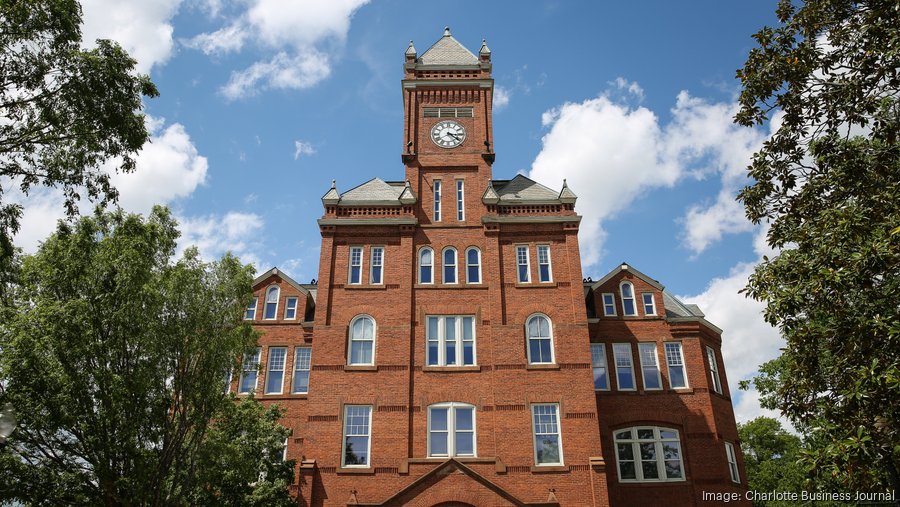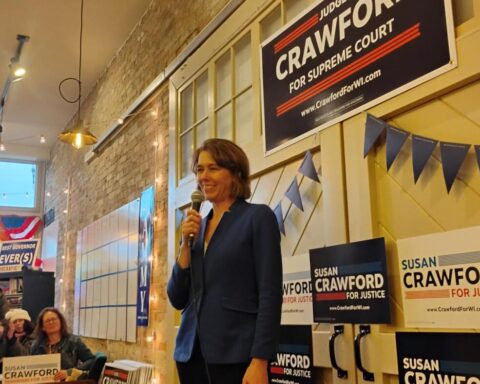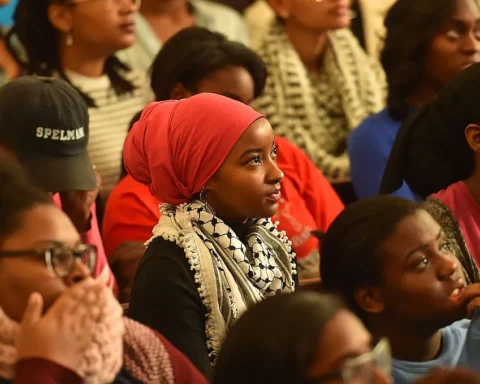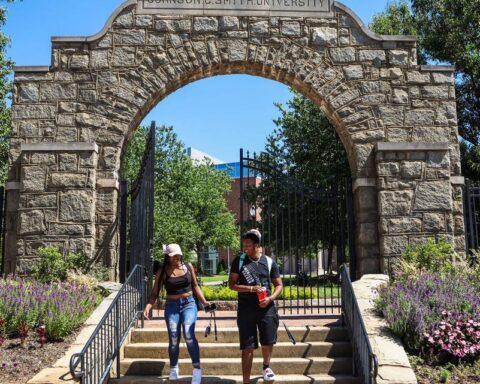Efforts to improve economic equity have come under fire by the current presidential administration. The leader of a local HBCU gives her take.
The Mayor’s Racial Equity Initiative emerged as a community effort in Charlotte after national outrage and protests over the death of George Floyd in Minneapolis. Floyd, a Black man, died after a police officer knelt on Floyd’s neck and back for nearly 10 minutes after an arrest.
Floyd died in May 2020. The Charlotte racial equity initiative was unveiled Nov. 1, 2021, at Johnson C. Smith University as a five-year, $250 million investment by government, nonprofits and companies in Black neighborhoods and residents.
President Donald Trump and his administration have targeted one of the main pillars of economic equity that emerged after Floyd’s death: DEI, or diversity, equity and inclusion. This month, the administration began investigating dozens of public and private universities for “race-exclusionary practices” and Trump-fueled backlashes against DEI have spurred large companies to end, water down or soften diversity hiring language and programs.
Charlotte-based Bank of America Corp. (NYSE: BAC), Truist Financial Corp. (NYSE: TFC) and San Francisco-based Wells Fargo & Co. (NYSE: WFC), which has its largest employee hub here, are among the companies that have reduced or avoided using “diversity” and altered reporting practices and policies in the past year.
JCSU is a private school but still faces potential funding challenges if the administration targets HBCUs (historically Black colleges and universities) and reduces or cuts federal spending for student aid and research, among other areas, because of DEI, which the administration considers illegal and discriminatory.
JCSU President Valerie Kinloch, during an interview with CBJ, vowed to continue pursuing DEI and equity policies no matter the political environment.
She began by pointing out that the school was founded in 1867 — two years after the Civil War ended — by formerly enslaved Black people.
“It was at a time when education opportunities were not currently available to certain groups of people, so that’s 1867,” she began. “And then we have investments into the university from The Duke Endowment, for example … I think the important thing to hold on to is that there is a misconception that an institution like JCSU is only for, by and with Black people. When you take a look at our faculty composition, that’s not the case.
Kinloch emphasized JCSU’s own focus on inclusivity. “We are critically inclusive of anyone who wants to be within the space to study, learn and work here are invited.”
The focus of DEI, she said, is thinking deeply about what it means to “live in a world where we seek to improve lives and learning conditions for every person.”
That includes making decisions about the allocation of resources to the people who need those resources the most, she said. “For as long as I’m here, (JCSU) is going to be to engage in some truly deep teaching, learning (and) research with other people to address fundamental questions about the human existence and how do we improve this for every single person who’s here — and for generations who are not yet here. That’s the conversation about DEI that we’re not having across this country that we need to have.”





